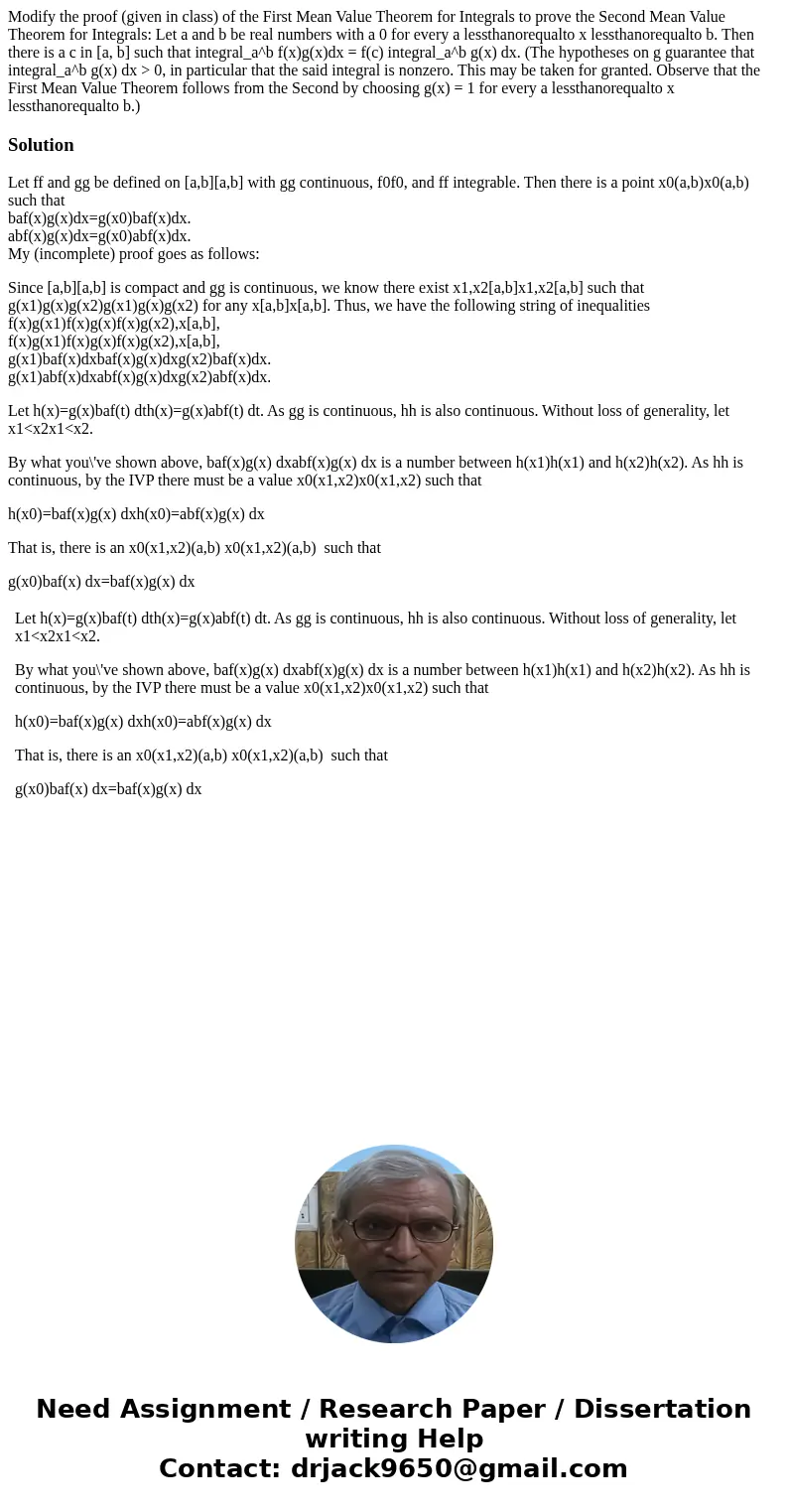Modify the proof given in class of the First Mean Value Theo
Solution
Let ff and gg be defined on [a,b][a,b] with gg continuous, f0f0, and ff integrable. Then there is a point x0(a,b)x0(a,b) such that
baf(x)g(x)dx=g(x0)baf(x)dx.
abf(x)g(x)dx=g(x0)abf(x)dx.
My (incomplete) proof goes as follows:
Since [a,b][a,b] is compact and gg is continuous, we know there exist x1,x2[a,b]x1,x2[a,b] such that g(x1)g(x)g(x2)g(x1)g(x)g(x2) for any x[a,b]x[a,b]. Thus, we have the following string of inequalities
f(x)g(x1)f(x)g(x)f(x)g(x2),x[a,b],
f(x)g(x1)f(x)g(x)f(x)g(x2),x[a,b],
g(x1)baf(x)dxbaf(x)g(x)dxg(x2)baf(x)dx.
g(x1)abf(x)dxabf(x)g(x)dxg(x2)abf(x)dx.
Let h(x)=g(x)baf(t) dth(x)=g(x)abf(t) dt. As gg is continuous, hh is also continuous. Without loss of generality, let x1<x2x1<x2.
By what you\'ve shown above, baf(x)g(x) dxabf(x)g(x) dx is a number between h(x1)h(x1) and h(x2)h(x2). As hh is continuous, by the IVP there must be a value x0(x1,x2)x0(x1,x2) such that
h(x0)=baf(x)g(x) dxh(x0)=abf(x)g(x) dx
That is, there is an x0(x1,x2)(a,b) x0(x1,x2)(a,b) such that
g(x0)baf(x) dx=baf(x)g(x) dx
| Let h(x)=g(x)baf(t) dth(x)=g(x)abf(t) dt. As gg is continuous, hh is also continuous. Without loss of generality, let x1<x2x1<x2. By what you\'ve shown above, baf(x)g(x) dxabf(x)g(x) dx is a number between h(x1)h(x1) and h(x2)h(x2). As hh is continuous, by the IVP there must be a value x0(x1,x2)x0(x1,x2) such that h(x0)=baf(x)g(x) dxh(x0)=abf(x)g(x) dx That is, there is an x0(x1,x2)(a,b) x0(x1,x2)(a,b) such that g(x0)baf(x) dx=baf(x)g(x) dx |

 Homework Sourse
Homework Sourse